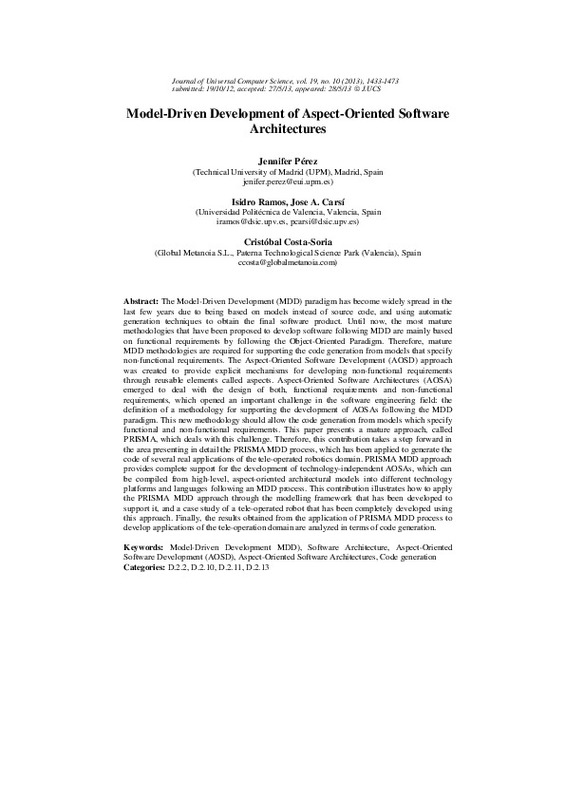JavaScript is disabled for your browser. Some features of this site may not work without it.
Buscar en RiuNet
Listar
Mi cuenta
Estadísticas
Ayuda RiuNet
Admin. UPV
Model-Driven Development of Aspect-Oriented Software Architectures
Mostrar el registro completo del ítem
Pérez Benedí, J.; Ramos Salavert, I.; Carsí Cubel, JÁ.; Costa Soria, C. (2013). Model-Driven Development of Aspect-Oriented Software Architectures. Journal of Universal Computer Science. 19(10):1433-1473. https://doi.org/10.3217/jucs-019-10-1433
Por favor, use este identificador para citar o enlazar este ítem: http://hdl.handle.net/10251/38629
Ficheros en el ítem
Metadatos del ítem
| Título: | Model-Driven Development of Aspect-Oriented Software Architectures | |
| Autor: | Pérez Benedí, Jenifer Ramos Salavert, Isidro Costa Soria, Cristobal | |
| Entidad UPV: |
|
|
| Fecha difusión: |
|
|
| Resumen: |
[EN] The Model-Driven Development (MDD) paradigm has become widely spread in the last few years due to being based on models instead of source code, and using automatic generation techniques to obtain the final software ...[+]
|
|
| Palabras clave: |
|
|
| Derechos de uso: | Reserva de todos los derechos | |
| Fuente: |
|
|
| DOI: |
|
|
| Editorial: |
|
|
| Versión del editor: | http://www.jucs.org/jucs_19_10/model_driven_development_of | |
| Código del Proyecto: |
|
|
| Agradecimientos: |
|
|
| Tipo: |
|









